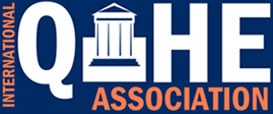In a bustling university classroom, a professor passionately lectures about the impacts of globalization, engaging a room full of eager students. This scene is typical across institutions worldwide, yet the quality of education varies significantly. Behind the scenes, accrediting agencies and the Quality Assurance Agency for Training ensure that educational standards are not only met but upheld, guaranteeing the value of educational credentials in an ever-competitive world.
Introduction to Accrediting Agencies
The landscape of higher education is as diverse as it is expansive. Accrediting agencies play a critical role in this ecosystem, acting as crucial benchmarks that institutions strive to meet. These agencies assess schools, colleges, and universities to ensure they meet predefined standards of quality and integrity.
The Role and Importance of Accreditation
Accreditation by respected accrediting agencies is more than a badge of honour for institutions; it's a promise of quality to students and employers alike. This recognition ensures that educational programs meet or exceed national and international standards, which is essential in a globalized education market.
Accreditation: A Pathway to Trust and Recognition
By ensuring that institutions adhere to rigorous standards, accrediting agencies provide a reliable indicator of quality and reliability in education. This system supports not only students in their educational choices but also employers in their hiring decisions, knowing that graduates have received an education that meets high standards.
Exploring the Quality Assurance Agency for Training
As the narrative shifts towards vocational education and training, the Quality Assurance Agency for Training emerges as a pivotal player. This agency specifically targets the consistency and relevancy of training programs, ensuring they are aligned with industry needs and technological advancements.
The Impact of Quality Assurance in Vocational Training
The Quality Assurance Agency for Training ensures that vocational programs do not just exist but thrive by meeting the demands of a fast-paced, ever-evolving workforce. This focus on quality and relevance helps bridge the gap between education and employment, which is crucial for economic growth and personal career success.
Ensuring Future-Ready Training with Quality Assurance
The agency’s role extends into the future of education, advocating for continuous improvement and innovation in training programs. By setting high standards, the Quality Assurance Agency for Training encourages institutions to keep pace with changes in industry and technology, thereby enhancing the employability of graduates.
Conclusion
In conclusion, the diligent work of accrediting agencies and the Quality Assurance Agency for Training is crucial in maintaining the high standards and relevance of educational programs worldwide. Their rigorous evaluation processes ensure that institutions not only promise but also deliver quality education and training. For more detailed information on the standards and processes involved, visit qahe.org.uk to understand how these bodies are shaping the future of education.





Comments